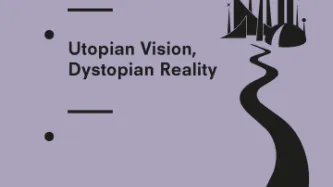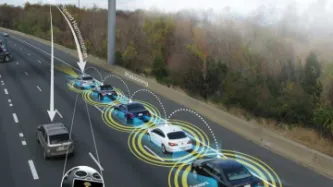Search
Content type: Examples
In late 2017, the residents of the small town of Santa Maria Tonantzintla, about three-hours away from Mexico City, discovered their town was intended to become a pilot smart city in a collaboration between the state of Puebla and the organisation Alianza Smart Latam. The town's residents, who had already lost its distinctive cobblestones, the clock tower, and a stucco bridge as part of the early stages of the project, filed an injunction to halt the project, which had failed to obtain the…
Content type: News & Analysis
Planning and participating in peaceful protests against governments or non-state actors’ policies and practices requires the capacity of individuals to communicate confidentially without unlawful interference. From protests in support of LGBTI rights to protests against specific projects that undermine local communities’ wellbeing, these movements would not have been possible without the ability to exchange ideas and develop plans in private spaces.
Unlawful interference with…
Content type: Long Read
The Privacy International Network is celebrating Data Privacy Week, where we’ll be talking about how trends in surveillance and data exploitation are increasingly affecting our right to privacy. Join the conversation on Twitter using #dataprivacyweek.
In the era of smart cities, the gap between the internet and the so-called physical world is closing. Gone are the days, when the internet was limited to your activities behind a desktop screen, when nobody knew you were a dog.
Today, the…
Content type: Examples
In 2017, the New York Times discovered that Uber had a secret internal programme known as "Greyball", which used data collected from the Uber app and other techniques to identify and bar regulators and officials from using its service. As the company expanded into new areas, its standard practice was to open up and begin offering rides without seeking regulatory approval first. The company used Greyball to prevent regulators from building a case against the company in areas where…
Content type: Examples
In 2015 Hong Kong's Face of Litter campaign used DNA samples taken from street litter and collected from volunteers to create facial images that were then posted on billboards across the city. The campaign, conceived by PR firm Ogilvy & Mather and organised by online magazine Ecozine and the Nature Conservancy, was intended to give a face to anonymous Hong Kong litterbugs and raise awareness of the extent of littering in the city and encourage people to…
Content type: Report
The smart city market is booming. National and local governments all over the world expect their cities to become more efficient, more sustainable, cleaner and safer by integrating technology, increasing data generation and centralising data to provide better services. From large multinationals to small start-ups, companies want their slice of the multi-billion dollars per year pie of municipal budgets and long-term government contracts.
But do smart cities even exist? And are our cities…
Content type: News & Analysis
October 31st 2017 will mark the 3rd World Cities Day (we will forgive if you did not know that), with the general theme “Better City, Better Life.” On this date, PI will be launching its latest report “Smart Cities: Utopian Vision, Dystopian Reality”. This is an opportunity for us to ask: who exactly are our cities going to become better for?
Technology is often given as an answer when we are not sure what the question is. Cities are no exception to that. The current…
Content type: News & Analysis
Ask people around you if they live in a smart city, and more likely than not they will answer that they don’t. I can tell you that because I have tried.
When giving talks about this very topic in cities like Berlin, The Hague and Stockholm, I always ask this question at the start. The rough ratio I tend to get is that: 15 per cent hesitantly raise their hand to say they do, 60 per cent don’t, 20 per cent just look confused and 5 per cent are not listening.
And yet most people who live in cities…
Content type: Case Study
Cities around the world are deploying collecting increasing amounts of data and the public is not part of deciding if and how such systems are deployed.
Smart cities represent a market expected to reach almost $760 billion dollars by 2020. All over the world, deals are signed between local governments and private companies, often behind closed doors. The public has been left out of this debate while the current reality of smart cities redefines people’s right to privacy and creates new…
Content type: News & Analysis
For as long as automobiles have been around, manufacturers have been trying to find ways of putting more technology inside of cars, oftentimes sold as value-added services for their customers, whether that be 8-tracks of the 1960s and 1970s, the enhancement to security of central locking of the 1980s and 1990s, or the introduction of satellite navigation in the 2000s.
Today, as our technologies become ‘smarter’, so do the risks to our personal privacy. This especially true as society is on the…







